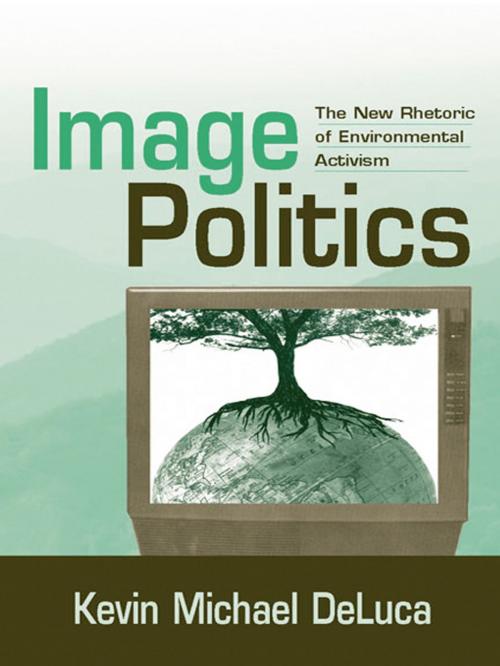Image Politics
The New Rhetoric of Environmental Activism
Nonfiction, Reference & Language, Language Arts, Public Speaking, Rhetoric, Communication, Science & Nature, Nature, Environment, Environmental Conservation & Protection| Author: | Kevin Michael DeLuca | ISBN: | 9781136503061 |
| Publisher: | Taylor and Francis | Publication: | November 12, 2012 |
| Imprint: | Routledge | Language: | English |
| Author: | Kevin Michael DeLuca |
| ISBN: | 9781136503061 |
| Publisher: | Taylor and Francis |
| Publication: | November 12, 2012 |
| Imprint: | Routledge |
| Language: | English |
This exceptional volume examines “image events” as a rhetorical tactic utilized by environmental activists. Author Kevin Michael DeLuca analyzes widely televised environmentalist actions in depth to illustrate how the image event fulfills fundamental rhetorical functions in constructing and transforming identities, discourses, communities, cultures, and world views. Image Politics also exhibits how such events create opportunities for a politics that does not rely on centralized leadership or universal metanarratives. The book presents a rhetoric of the visual for our mediated age as it illuminates new political possibilities currently enacted by radical environmental groups.
Chapters in the volume cover key areas of environmental activism such as:
*The rhetoric of social movements;
*Imaging social movements;
*Environmental justice groups; and
*Participatory democracy.
This book is of interest to scholars and students of rhetorical theory, media and communication theory, visual theory, environmental studies, social change movements, and political theory. It will also appeal to others interested in ecology, radical environmental politics, and activism, and is an excellent supplemental text in advanced undergraduate and graduate level courses in these areas.
This exceptional volume examines “image events” as a rhetorical tactic utilized by environmental activists. Author Kevin Michael DeLuca analyzes widely televised environmentalist actions in depth to illustrate how the image event fulfills fundamental rhetorical functions in constructing and transforming identities, discourses, communities, cultures, and world views. Image Politics also exhibits how such events create opportunities for a politics that does not rely on centralized leadership or universal metanarratives. The book presents a rhetoric of the visual for our mediated age as it illuminates new political possibilities currently enacted by radical environmental groups.
Chapters in the volume cover key areas of environmental activism such as:
*The rhetoric of social movements;
*Imaging social movements;
*Environmental justice groups; and
*Participatory democracy.
This book is of interest to scholars and students of rhetorical theory, media and communication theory, visual theory, environmental studies, social change movements, and political theory. It will also appeal to others interested in ecology, radical environmental politics, and activism, and is an excellent supplemental text in advanced undergraduate and graduate level courses in these areas.















